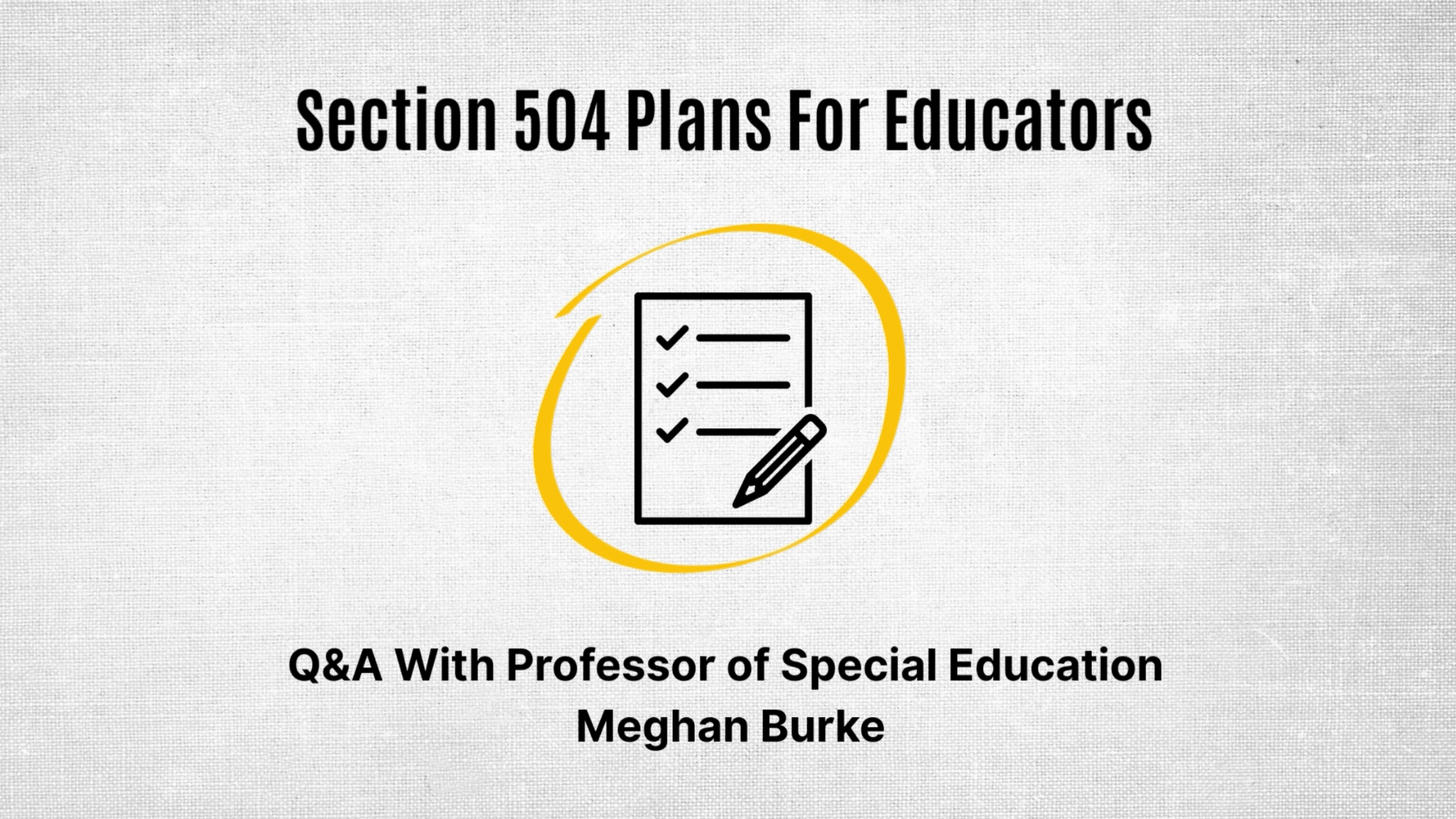Education
Understanding Section 504 Plans: Insights from Meghan Burke

Educators and administrators are increasingly turning their attention to Section 504 plans as a vital resource for supporting students with disabilities. These plans, which cater to over 1.3 million students across the United States, provide necessary accommodations to ensure that all learners have equitable access to education. Unlike Individualized Education Plans (IEPs), Section 504 plans offer a framework that focuses on providing support without the need for a formal special education classification.
In a recent discussion, Meghan Burke, a professor of special education at Vanderbilt Peabody College, addressed key questions regarding Section 504 plans. Her insights are part of a two-part series aimed at equipping educators with the knowledge they need to effectively navigate these plans.
Key Insights on Section 504 Plans
Burke emphasized that understanding how students qualify for Section 504 plans is essential for educators. The eligibility requirements are broad, encompassing various disabilities that substantially limit one or more major life activities. This includes conditions such as ADHD, autism, and physical impairments. Burke advises educators to be proactive in recognizing signs that a student may require support, which can range from academic difficulties to social challenges.
One crucial aspect of these plans is the process of seeking support for students. Burke recommends that educators engage in open discussions with parents or guardians to identify specific needs and potential accommodations. This collaborative approach can lead to more effective and personalized support strategies.
Accommodations under Section 504 plans vary widely, tailored to the individual needs of each student. Examples include extended time on tests, preferential seating, and the use of assistive technology. Burke highlights the importance of flexibility in implementing these adjustments, as what works for one student may not be effective for another.
Resources and Further Information
For those seeking additional guidance, Burke suggests exploring resources from a Parent Training and Information Center. These centers offer valuable information and support for families navigating the complexities of educational plans. Additionally, Burke’s research paper, published in the journal Intervention in School and Clinic, provides in-depth answers to common questions about Section 504 plans.
Burke’s expertise is backed by her extensive experience in the field, having authored over 170 published articles and developed advocacy programs such as the Vanderbilt Kennedy Center Volunteer Advocacy Project. Her work has significantly contributed to the understanding and implementation of special education practices.
As educators and schools continue to adapt to the diverse needs of their students, understanding Section 504 plans and their implications is more critical than ever. This knowledge not only empowers educators but also ensures that students with disabilities receive the support they need to thrive in their educational journeys.
-

 Technology5 months ago
Technology5 months agoDiscover the Top 10 Calorie Counting Apps of 2025
-

 Health3 months ago
Health3 months agoBella Hadid Shares Health Update After Treatment for Lyme Disease
-

 Health3 months ago
Health3 months agoErin Bates Shares Recovery Update Following Sepsis Complications
-

 Technology4 months ago
Technology4 months agoDiscover How to Reverse Image Search Using ChatGPT Effortlessly
-

 Technology1 month ago
Technology1 month agoDiscover 2025’s Top GPUs for Exceptional 4K Gaming Performance
-

 Technology2 months ago
Technology2 months agoElectric Moto Influencer Surronster Arrested in Tijuana
-

 Technology5 months ago
Technology5 months agoMeta Initiates $60B AI Data Center Expansion, Starting in Ohio
-

 Technology5 months ago
Technology5 months agoRecovering a Suspended TikTok Account: A Step-by-Step Guide
-

 Health4 months ago
Health4 months agoTested: Rab Firewall Mountain Jacket Survives Harsh Conditions
-

 Lifestyle5 months ago
Lifestyle5 months agoBelton Family Reunites After Daughter Survives Hill Country Floods
-

 Technology4 months ago
Technology4 months agoHarmonic Launches AI Chatbot App to Transform Mathematical Reasoning
-

 Technology3 months ago
Technology3 months agoUncovering the Top Five Most Challenging Motorcycles to Ride




















